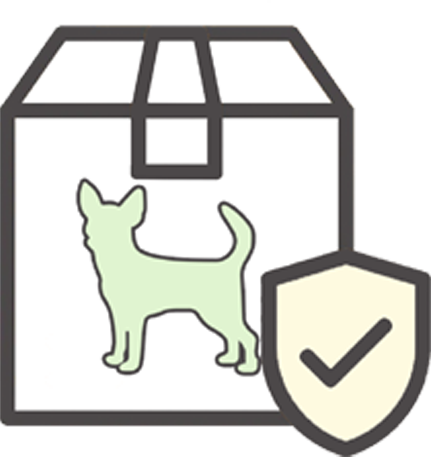Separation Anxiety and Loss of Appetite in Dogs
Updated On: Friday, January 10, 2025 12:39:33 PM America/Los_Angeles
Separation anxiety manifests itself through a variety of both behavioral and medical symptoms. Many of them are well-known: pacing, urinating in inappropriate spots (despite successful potty training), destructive chewing, and so on.
One lesser known consequence of separation anxiety in dogs is loss of appetite. This symptom tends to occur in more severe cases, but it’s an important one to keep in mind in case you notice your fur baby’s separation anxiety worsening.
Photo by Pauline Loroy
Fortunately, appetite loss can be treated. Though the root cause of separation anxiety will need to be addressed to fully remedy the problem, there are ways to stimulate your pup’s appetite while you work on the larger issue.
- Natural appetite stimulants: Some nutrients, like Omega-3, can help naturally stimulate appetite. Supplement your dog’s diet with superfoods like coconut for a safe and effective way to encourage your dog to eat.
- More enticing food: Try different ways to make food more appealing for your pup. Some common but simple things you can do are warm up their food, add a delicious food topper, or provide treats after they successfully finish their meals.
- Interactive toys: Sneak in some nutrients with an interactive toy you can use with treats during playtime together. An interactive toy can encourage your dog to eat because not only are treats more enticing, your pup may feel more compelled to snack if they associate food to quality time with their human. In turn, dogs will continue to develop positive associations with eating. Tip: Try using a chew toy with peanut butter, which is loaded with essential nutrients like potassium.
- Shared meals: As mentioned above, the more positive associations your dog builds around mealtimes, the more likely they are to eat their food. Sometimes, dogs struggling with separation anxiety won’t eat because their parents routinely feed them before leaving for work or going out for the night. One way to circumvent this is to eat at the same time, so that your fur baby can learn that mealtimes are a segment of the day that they can rely on to spend with you.
Note that a change in eating habits also results in a change in potty behaviors. Having a real grass pee pad can help you be prepared for any potential accidents. Accommodate the changes they may be experiencing by having a pee pad nearby at all times.
Separation anxiety can feel like a never ending cycle, complicated by behavioral and medical symptoms. Dog paw-rents can luckily make small adjustments to reassure their precious pups that leaving doesn’t mean goodbye. Developing routines that relieve their anxiety is key to making sure that they feel safe and secure about your presence.


